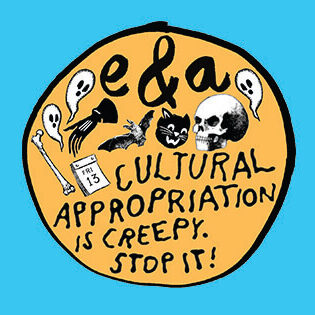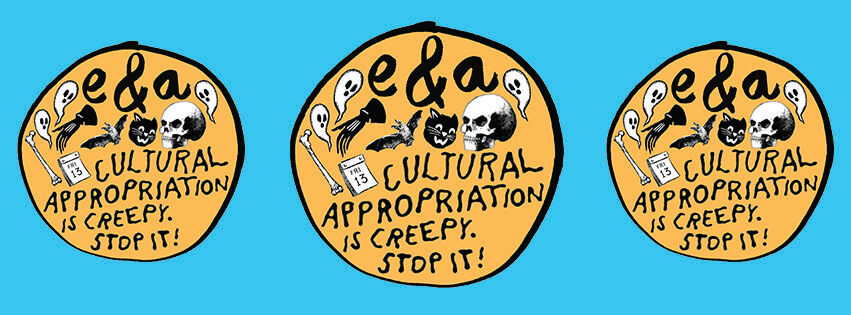
Don’t mess up when you dress up
Regardless of the fact that there is always last-minute scrambling, I think about my Halloween costume options all year
Regardless of the fact that there is always last-minute scrambling, I think about my Halloween costume options all year. (There are so many factors!) What will the weather be like? Can I find everything at Value Village? Will someone be wearing the same outfit? Do I want to be funny or clever or scary? Is my costume culturally appropriative? If I’ve answered ‘yes’ to the latter, my costume is certainly a no-go.
According to Wikipedia, cultural appropriation is the “adoption of some specific elements of one culture by a different cultural group.” Dressing up as a culture other than your own constitutes cultural appropriation. This is not to suggest that people should not wear the dress of their own culture. Cultural appropriation is an everyday occurrence—from the Harlem Shake YouTube phenomenon, to Miley Cyrus’ twerking obsession, to hipster headdresses—but it is especially prevalent around Halloween. Halloween—at least in a contemporary context—is intended to be an enjoyable celebration of gluttony and temporary transformation. However, when the transformation means dressing up as another culture, that is not okay.
A costume can be put on and discarded at the wearer’s discretion, without experiencing the reality of oppression faced by those for whom it is not a costume. Cultural appropriation “perpetuates stereotypes, misinformation, and historical and cultural inaccuracies.” A few popular examples include Pochahontas costumes, headdresses, geisha costumes, sugar-skull face-paint, and ‘terrorist’ costumes.
Perhaps you are reading this article about cultural appropriation and doubting that it occurs on Dalhousie campus. This isn’t the case. Last year Ishika Sharma, VP External of the Dalhousie International Student Association, was approached by students who were rightfully upset about some of the costumes worn by students on campus. These included a student in blackface, “a guy wearing a burqa as a Halloween costume,” says Sharma, and non-Aboriginal students wearing Aboriginal themed costumes.
Hamsphire College in Massachusetts has created the fantastic online checklist, “Is Your Halloween Costume Racist?” Check yourself and your friends—your costume can have unintended negative effects! The four questions are a simple and straightforward resource.
1. Is my costume supposed to be funny? Is the humour based on making fun of real people, human traits or cultures?
2. Does my costume represent a culture that is not my own?
3. Does my costume reduce cultural differences to jokes or stereotypes?
4. Does my costume perpetuate stereotypes, misinformation, or historical and cultural inaccuracies?
The Equity and Accessibility Office of the Dalhousie Student Union has been handing out information about cultural appropriation during Halloween and will continue to do so on Halloween night. They will be tabling outside of the Grawood with pamphlets, candy, and a rack of “last-minute costumes.” The mandate of the Equity and Accessibility Office is to challenge institutional and systemic oppression on campus. It is not their intention to shame or ostracize students but instead foster a safer space for students on campus.
It is impossible to distill an entire culture into one costume. Not only is it offensive, it shows lazy costume skills. I am issuing Dal students a challenge: don’t rely on tired and problematic stereotypes. Be more creative this Halloween.
Disclosure: Elise Boudreau Graham is the Campaigns and Partnership Coordinator at the DSU Equity and Accessibility Office.







